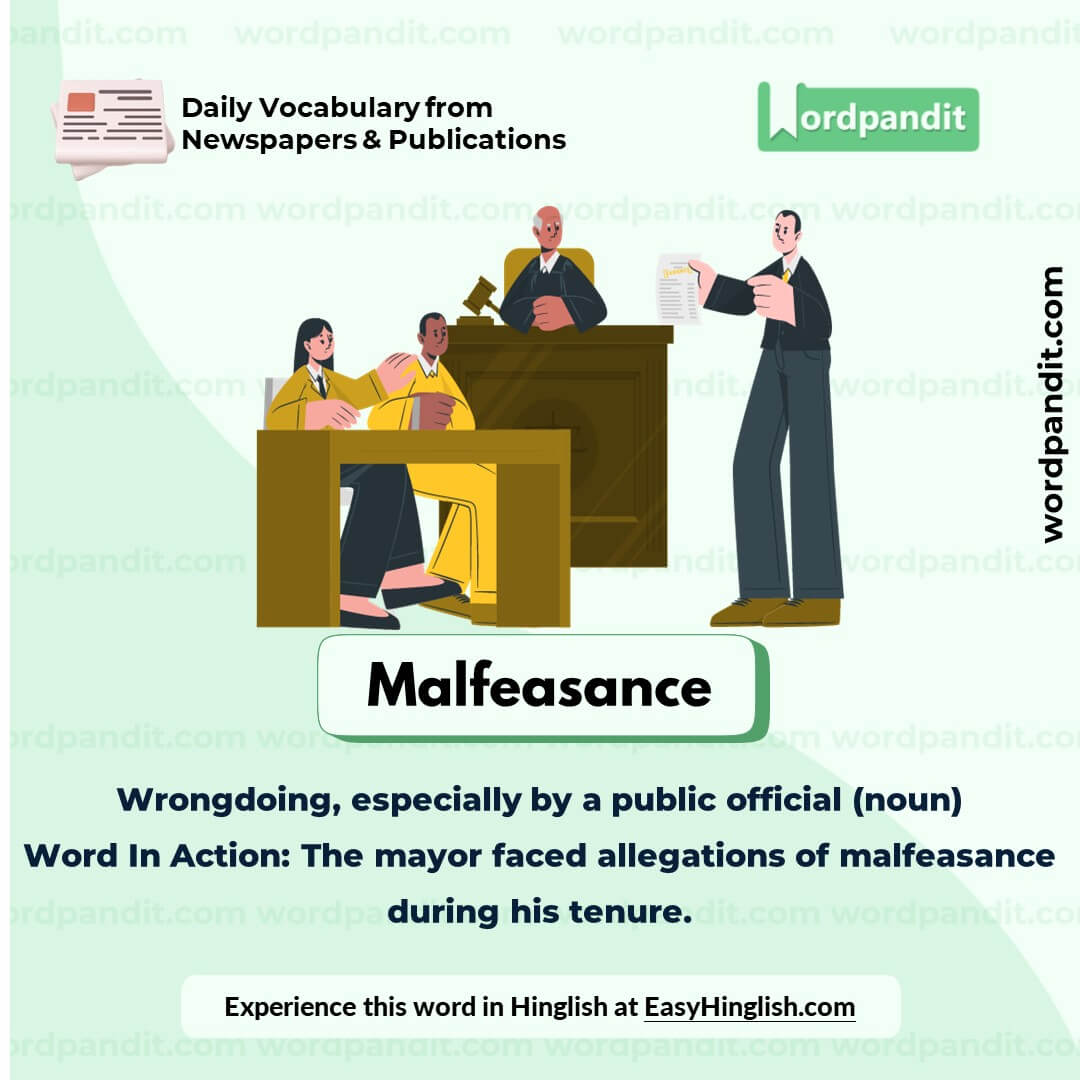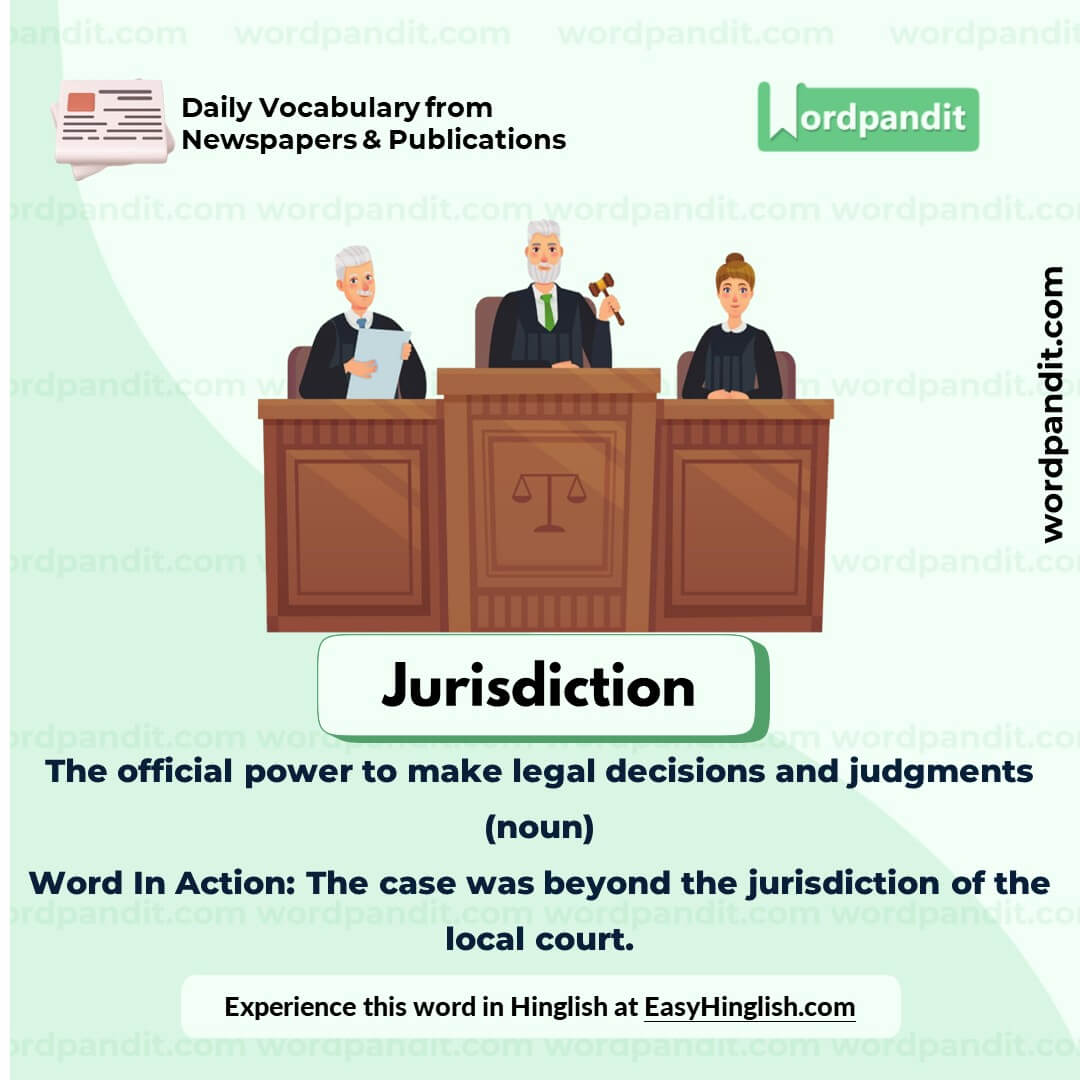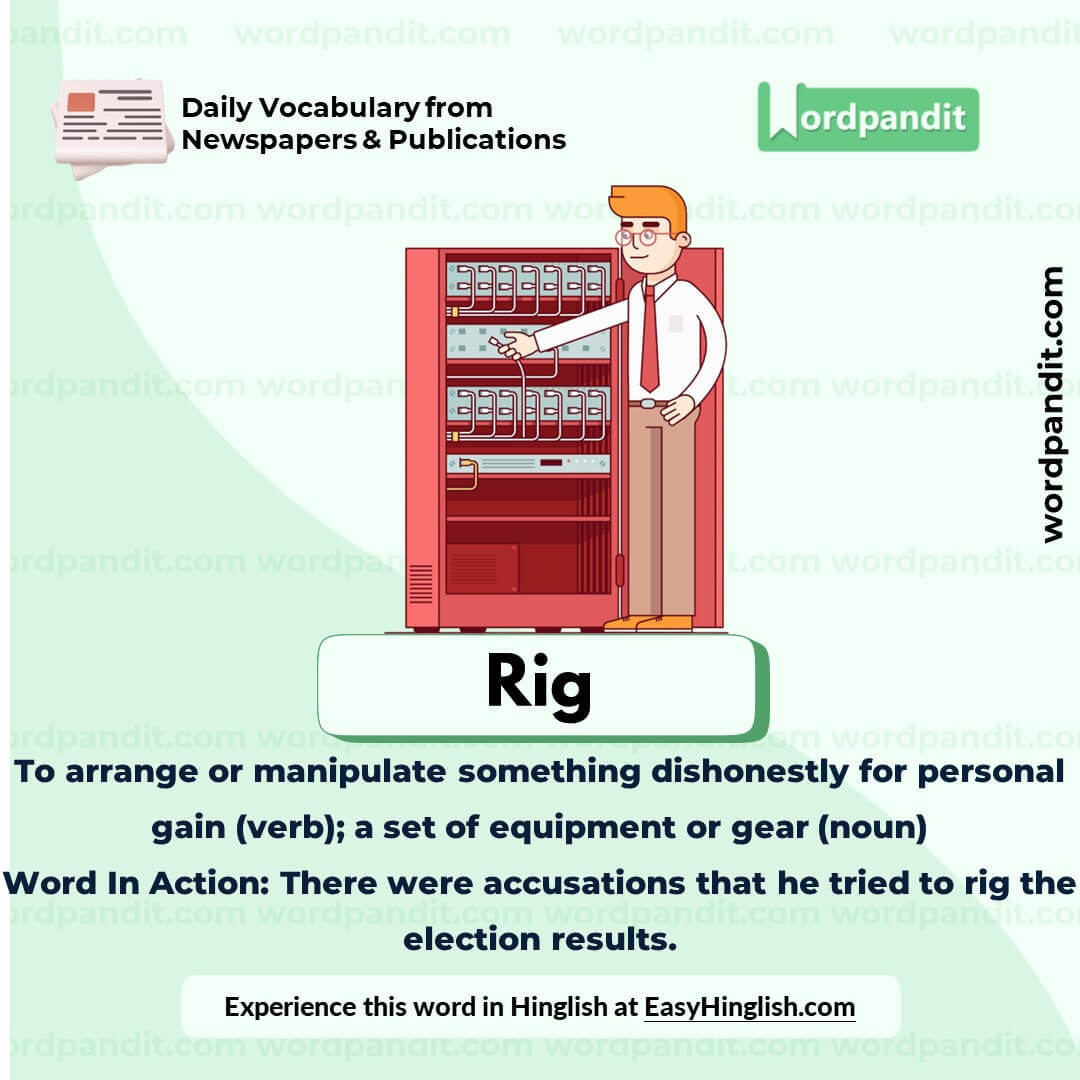Daily Vocabulary from International Newspapers and Publications
Expand Your Vocabulary with Wordpandit’s Global Vocabulary Hub
At Wordpandit, we are committed to helping you develop a truly global vocabulary by drawing from some of the most respected international publications. This section is designed to keep you ahead of the curve by introducing you to words that define global conversations and trends.
The Power of Global Sources
To help you think and communicate on a global scale, we curate vocabulary from renowned international sources, such as:
- The New York Times
- The Washington Post
- BBC
- The Guardian
- The Economist
- Scientific American
- Psychology Today
- And many more...
Stay Global, Stay Competitive
Our daily updates from international publications ensure you are consistently exposed to new words that reflect global news and developments, making sure your vocabulary is not only current but also globally relevant.
Enhance Your Global Perspective
Whether you’re preparing for international exams, aiming to excel in global business communication, or want to enhance your language skills for personal growth, Wordpandit offers the resources you need to thrive in a global context.
Effective Learning, Global Reach
Our learning methodology combines global examples, memory aids, and interactive activities, allowing you to internalize new words effectively and apply them in real-world scenarios.
Begin Your Global Vocabulary Journey Now!
Why Choose Wordpandit?
Practical Learning: Focus on words you'll actually encounter in real-world reading, enhancing your comprehension and communication skills.
Diverse Content: From current affairs to scientific breakthroughs, our varied sources expose you to vocabulary across multiple domains.
Effortless Integration: Make Wordpandit a part of your daily routine. Just a few minutes each day can significantly boost your lexicon over time.
Your Path to Vocabulary Mastery
- Visit our Daily Vocabulary section regularly
- Explore new words and their usage in context
- Practice incorporating these words into your own writing and speech
- Track your progress as your vocabulary expands
Start Your Journey Today
Embark on your vocabulary enhancement journey with Wordpandit. By consistently engaging with our daily posts, you'll build a robust vocabulary that serves you well in academic, professional, and personal contexts.
Remember, a word a day keeps linguistic limitations at bay. Make Wordpandit your daily companion in the quest for vocabulary excellence!
WORD-1: Malfeasance
Context:
"In the aftermath of the 2020 election, as supporters of Donald J. Trump scoured the nation for any malfeasance that might explain his defeat, the county clerk’s office in Boise, Idaho, was inundated with queries." - The New York Times
Explanatory Paragraph:
The term malfeasance refers to wrongful, unlawful, or unethical conduct, especially by someone in a position of power or authority. It often highlights deliberate actions that breach laws or trust.
Meaning: Wrongdoing, especially by a public official (noun)
Pronunciation: mal-FEE-zuhns
Difficulty Level: ⭐⭐⭐⭐ (Advanced)
Etymology: From Old French malfaisance, meaning "wrongdoing," derived from Latin mal- (bad) + facere (to do)
Synonyms & Antonyms:
Synonyms: misconduct, wrongdoing, corruption, misdeed
Antonyms: integrity, honesty, propriety, virtue
Usage Examples:
- The governor was accused of malfeasance after evidence of embezzlement came to light.
- Corporate malfeasance undermined public trust in the company.
- He was removed from office due to repeated acts of malfeasance.
- The investigation revealed no malfeasance on the part of the staff.
Cultural Reference:
Malfeasance is often a central theme in political scandals, such as the Watergate scandal, which revealed corruption and abuse of power at the highest levels of government.
Think About It:
Why do you think malfeasance is more likely to be noticed and condemned in public officials compared to private individuals?
Quick Activity:
Research a famous case of malfeasance and summarize how the wrongdoing was uncovered and addressed.
Memory Tip:
Remember "malfeasance" by breaking it into "mal-" (bad) and "feasance" (doing), which together mean "bad doing."
Real-World Application:
Understanding the concept of malfeasance can help citizens hold public officials accountable for ethical governance.
WORD-2: Jurisdiction
Context:
"The New York courts will have jurisdiction as the SEC violations and criminal offences have taken place in its territory." - BBC
Explanatory Paragraph:
The term jurisdiction refers to the legal authority or power that a court or other legal body has to make decisions and judgments within a specific area or over certain types of legal cases. It determines the scope within which an entity can operate or enforce laws.
Meaning: The official power to make legal decisions and judgments (noun)
Pronunciation: jur-is-DIK-shun
Difficulty Level: ⭐⭐⭐ (Intermediate)
Etymology: From Latin juris (law) + dictio (a saying, pronouncement)
Synonyms & Antonyms:
Synonyms: authority, control, command, administration, governance
Antonyms: powerlessness, impotence, incapacity
Usage Examples:
- The local court has no jurisdiction over international crimes.
- Disputes regarding trade laws often fall under federal jurisdiction.
- The company argued that the case should be transferred to a jurisdiction with more favorable laws.
- Environmental regulations differ depending on the jurisdiction of the case.
Cultural Reference:
The phrase "beyond the jurisdiction" often appears in legal dramas and literature, reflecting situations where someone escapes or acts outside the control of a legal body.
Think About It:
How does the concept of jurisdiction affect international cases where multiple countries are involved?
Quick Activity:
Identify a scenario in your daily life where jurisdiction might apply. For example, think about who has authority to resolve a school or workplace issue.
Memory Tip:
Remember "jurisdiction" as "jury's dictionary," where it defines the areas of legal authority and power.
Real-World Application:
Understanding jurisdiction is crucial for businesses operating in multiple states or countries to comply with the varying laws effectively.
WORD-3: Reconfigure
Context:
"Should we expect the air quality in Delhi and the wider northern Gangetic belt to improve over the next decade? Probably not; unless we are able to reconfigure the nature of our polity." - BBC
Explanatory Paragraph:
The word reconfigure refers to altering the setup, structure, or arrangement of something to make it work differently or better. It implies a deliberate change aimed at achieving improvement or adaptation to new circumstances.
Meaning: To rearrange or restructure something, typically to improve it (verb)
Pronunciation: ree-kuhn-FIG-yer
Difficulty Level: ⭐⭐⭐ (Intermediate)
Etymology: From the prefix re- meaning "again" and "configure," derived from Latin configurare ("to shape, fashion, or form").
Synonyms & Antonyms:
Synonyms: rearrange, reorganize, modify, adapt, reshape
Antonyms: preserve, maintain, stagnate
Usage Examples:
- The company plans to reconfigure its office layout to improve productivity.
- Engineers had to reconfigure the software to address compatibility issues.
- In the wake of the disaster, the city decided to reconfigure its emergency response plans.
- The teacher reconfigured the seating arrangement to encourage group discussions.
Cultural Reference:
Reconfiguring often features in technological and social contexts, such as debates around "reconfiguring societies" to adapt to climate change, as seen in discussions about global policy reform.
Think About It:
What aspects of your daily routine could you reconfigure to save time or increase efficiency?
Quick Activity:
Pick a common object in your room (e.g., a chair or desk) and imagine how you would reconfigure it to make it more functional or appealing.
Memory Tip:
Think of "reconfigure" as "re + configure," meaning "to set up again," which can help you recall its meaning of rearranging or modifying something.
Real-World Application:
In technology, "reconfigure" is often used when updating system settings or redesigning workflows to improve efficiency, making it an essential term in professional and personal problem-solving contexts.
WORD-4: Rig
Context:
"Outlandish claims were spreading in conservative circles across the country that votes had been discarded or altered in a coordinated effort to rig the election." - The New York Times
Explanatory Paragraph:
The word rig refers to manipulating or arranging something, often fraudulently or dishonestly, to achieve a desired outcome. It can also mean setting up equipment or a system, depending on the context.
Meaning: To arrange or manipulate something dishonestly for personal gain (verb); a set of equipment or gear (noun)
Pronunciation: rig
Difficulty Level: ⭐⭐⭐ (Intermediate)
Etymology: Origin uncertain; first recorded in the 17th century, possibly from Scandinavian roots meaning "to fit out a ship."
Synonyms & Antonyms:
Synonyms: manipulate, fix, arrange, tamper
Antonyms: verify, validate, ensure fairness
Usage Examples:
- There were allegations that the referee rigged the match in favor of one team.
- The sailors spent the morning rigging the ship's sails for their journey.
- He was caught trying to rig the results of the competition by bribing the judges.
- The construction workers rigged a temporary pulley system to lift the heavy beams.
Cultural Reference:
The phrase "the system is rigged" became a popular expression in political discourse, used to suggest that institutions are manipulated to favor certain groups or individuals unfairly.
Think About It:
What are the potential consequences when systems like elections or competitions are rigged?
Quick Activity:
Think of a situation where fairness is critical. Write a short paragraph explaining how rigging could undermine trust in that situation.
Memory Tip:
Remember "rig" by associating it with "rigging a game," where someone dishonestly sets it up to favor a specific outcome.
Real-World Application:
The word "rig" is commonly used in discussions about fairness, from elections and sports to business practices, emphasizing the importance of transparency and integrity.
WORD-5: Antiquarian
Context:
"The town of Lewes, with its picturesque cottages and bustling high street full of antiquarian bookshops and artisanal bakeries, might seem the very model of traditional English respectability." - BBC
Explanatory Paragraph:
The term antiquarian refers to someone who studies, collects, or deals in antiques or ancient artifacts. It can also describe objects, shops, or interests that focus on things of the past, often with historical or cultural significance.
Meaning: Relating to or dealing in antiques or rare old books (adjective); a person who studies or collects antiques (noun)
Pronunciation: an-ti-KWAI-ree-uhn
Difficulty Level: ⭐⭐⭐⭐ (Advanced)
Etymology: From Latin antiquarius, meaning "pertaining to antiquity," derived from antiquus (ancient)
Synonyms & Antonyms:
Synonyms: archaic, historical, old-fashioned, antique
Antonyms: modern, contemporary, futuristic
Usage Examples:
- The antiquarian bookshop was a treasure trove of rare manuscripts and first editions.
- She was an antiquarian at heart, spending her weekends exploring flea markets for hidden gems.
- The museum featured an antiquarian exhibit showcasing tools and artifacts from the 18th century.
- He inherited an antiquarian collection of coins that dated back to the Roman Empire.
Cultural Reference:
Antiquarian societies, such as The Society of Antiquaries of London, have played a crucial role in preserving historical artifacts and advancing the study of history since the 18th century.
Think About It:
What motivates people to collect or study antiques, and how do such pursuits contribute to our understanding of history?
Quick Activity:
Describe an object in your home or community that might be considered antiquarian. What makes it special or historically significant?
Memory Tip:
Remember "antiquarian" by associating it with "antique"—both relate to objects or interests from the past.
Real-World Application:
Understanding the term "antiquarian" is useful for appreciating historical studies, rare book collections, or professions that preserve and restore valuable artifacts.
















